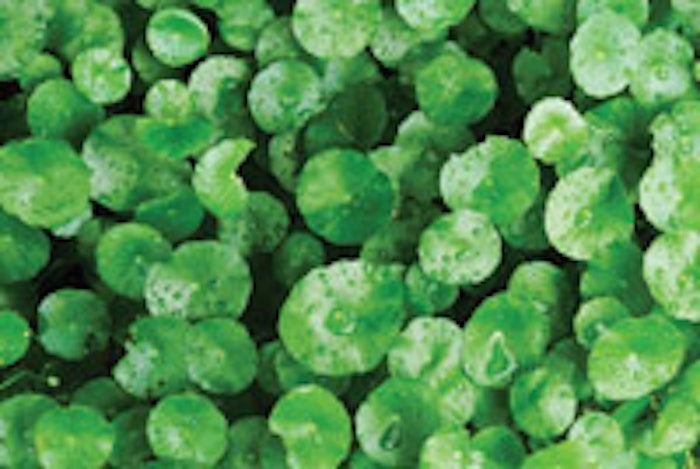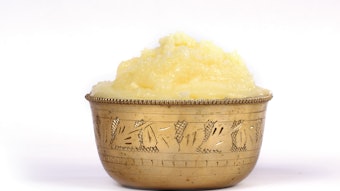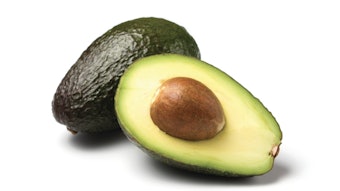
What’s really aging skin? Is it possible there’s one root cause responsible behind skin aging, diseases and other challenges? Much of the available research says yes—pointing to inflammation as the common denominator.
Although inflammation is often thought of as an infection or wound, it’s actually the body’s response mechanism to those two factors, or it could mean there is a deeper systemic issue present. It’s the body’s natural response to trauma and, in fact, it is a very complex biological process.
Inflammation is a signal to the body to begin the healing process. Without it, wounds and infections would not heal. It’s an important and necessary part of skin rejuvenation, but in chronic situations, inflammation becomes destructive. As a skin care professional, it’s important you understand the difference between acute and chronic inflammation, and how it impacts the aging and rejuvenation process.
Types of inflammation
There are two classifications of inflammation: acute and chronic. Acute is the aforementioned initial response by the body to initiate healing. Chronic is prolonged inflammation, which can often lead to a variety of diseases.
Acute inflammation generally lasts for up to several days and is essential to the healing process. This is simply the body’s way of sending internal support to the wound site by increasing the flow of plasma and leukocytes to eliminate pathogens. Swelling indicates the area is full of plasma and leukocytes, and pain draws awareness to the damage, prompting gentle care be taken. This is normal inflammation and is a good thing.
When inflammation persists or serves no purpose, it damages the body and thus, the skin. Chronic inflammation is when the immune system mistakenly attacks normal tissues.1 Prolonged inflammation has been linked as a major underlying factor in most of the challenges that plague the skin. In fact, according to an article published in the Journal of Cosmetic Dermatology, “chronic inflammation appears strongly linked to many preventable and treatable skin diseases and conditions, such as visible skin aging.”2
The correlation between chronic inflammation, and cutaneous and systemic diseases was suggested decades ago by scientists Albert Kligman, MD, and Robert Lavker, PhD, and has since been scientifically accepted.3 Aging, hyperpigmentation, rosacea and eczema, to name a few, can also be traced to chronic inflammation. In the body, inflammation has been linked as the root cause of atherosclerosis, rheumatoid arthritis, cancer, heart disease, diabetes, Alzheimer’s disease and stroke.4
Inflammation: the good and the bad
There are five principal signs of inflammation—pain, heat, redness, swelling and loss of function—all of which are essential to regenerating the skin. When the skin barrier is disrupted during the inflammation stage, platelets release pro-youth growth factors and other pro-inflammatory molecules to heal, rebuild and renew the area.
Certain esthetic treatments trigger this acute inflammatory response. For example, when performing a skin peel, the first sign of wounding is an inflammatory response. This controlled, short-term response initiates the rejuvenation process and can help restore skin to optimum health. It’s critical, however, to replenish the skin with skin-building antioxidants and growth factors.
Inflammation only becomes problematic when it is chronic. When it is a constant part of your physiology, serious issues may occur, such as cancer, rheumatoid arthritis, atherosclerosis, hypersensitivities, autoimmune disease and chronic acne.
There are a number of stimuli that induce inflammation including burns; overexposure to UV rays; stress; toxins, such as pollution and smoking; trauma; alcohol; immune reactions; and infection by pathogens and foreign bodies, such as dirt and debris. Inflammation caused by free radicals induces degradation of cells and reduction of collagen production. Throughout time, this inhibits the body’s ability to naturally repair itself, which, in turn, causes visual signs of aging. With the skin constantly being barraged by free radicals, it’s important to eliminate as many opportunities for exposure to these as possible. This includes limiting sun exposure, reducing stress, increasing sleep and not smoking.
Taming inflammation
With inflammation at the root of many of skin’s greatest challenges, it becomes necessary for skin care professionals to shift from just addressing the issue at hand and dive one level deeper in order to treat the inflammation or source of inflammation. This is where anti-inflammatory and antioxidant-rich ingredients become your greatest allies.
Antioxidants and anti-inflammatory ingredients should not only be a part of a healthy diet, but also a part of a healthy skin regimen. Topicals known to inhibit inflammation, matrix metalloproteinases (MMPs), reactive oxygen species (ROS) and glycation include the following.
- Arnica—It speeds wound-healing and reduces inflammation.
- Centella asiatica—This is a herbaceous plant that’s a powerful anti-inflammatory.
- Epidermal growth factor (EGF)—Composed of 53 amino acids, EGF is a protein that heals skin injuries and stimulates cell proliferation.
- Ergothioneine (L)—It is a potent antioxidant and naturally derived amino acid.
- Fructooligosaccharides (D-beta)—It is produced enzymatically from sugar beets and boosts skin immunity.
- Glucosamine HCI (D)—It provides anti-inflammatory and antiglycation support.
- Glycine soja—This MMP-blocker has amino acids that promote collagen and elastin synthesis.
- Omega-6 essential fatty acids (linoleic and oleic acid)—These provide anti-inflammatory skin-building benefits.
- Peptides—These proteins work to activate tissue growth factor (TGF) and collagen production.
- Plantago lanceolata leaf extract (plant stem cell)—It reduces inflammation.
- Saccharomyces, Rosmarinyl glucoside, gallyl glucoside, caffeyl glucoside—This complex regulates major inflammation factors, and is a pure active ingredient obtained by the enzymatic modification of natural plants.
- Vitamin C (L-ascorbic acid)—A potent antioxidant and collagen-builder, vitamin C protects against photodamage, neutralizes ROS and supports wound-healing.
Others include butcher’s broom, cinnamon, D-alpha tocopherol, green tea, L-glutathione (tripeptide), resveratrol and Thermus thermophilus ferment extract. Because these support the reduction of free radicals and inflammation, they lend themselves to be an ally against glycation. Keep in mind this is a short list of ingredients and the products that contain them.
A healthful, low-inflammatory diet rich in antioxidants will also support overall skin health. Advise clients to look for these antioxidants, both in food and skin care formulas:
- Vitamin A—carrots, kale, spinach, pumpkin, liver and cantaloupe;
- Vitamin C—camu camu, broccoli, brussels sprouts, guava and citrus;
- Vitamin E—olive oil, walnut oil, wheat germ oil, oats, tomatoes and carrots;
- Bioflavonoids—citrus, berries, onions, tea, red wine, dark chocolate, sea buckthorn; and
- Polyphenols—berries, tea, dark chocolate, walnuts, peanuts and pomegranates.
Protection is key
Of course, one of the biggest contributors of inflammation and aging is the sun. Remind clients the best defense against aging is prevention, and to use an SPF 30 or higher containing natural sunscreens, such as zinc. Although not all causes of inflammation can be avoided, this is one stimulus that is absolutely avoidable and avoidance will protect the skin from irreversible damage and disease. Keep in mind that proper diagnosis is essential. If you are ever unsure of the cause of inflammation, refer clients to a medical professional.
REFERENCES
- www.drweil.com/drw/u/QAA359518/Influencing-Inflammation.html
- www.ncbi.nlm.nih.gov/pubmed/18254816?report=docsum
- RM Lavker and AM Kligman, Chronic heliodermatitis: a morphological evaluation of chronic actinic dermal damage with emphasis on the role of mast cells, J Invest Derm 90 325–330 (1988)
- online.wsj.com/news/articles/SB10001424052702303612804577531092453590070
(All websites accessed Jan 28, 2014)
Rhonda Allison is the founder and CEO of Rhonda Allison Cosmeceuticals and RA for Men. She is also an author and internationally known speaker with more than 30 years of esthetic experience and can be contacted at 866-313-7546 or via e-mail at [email protected].










